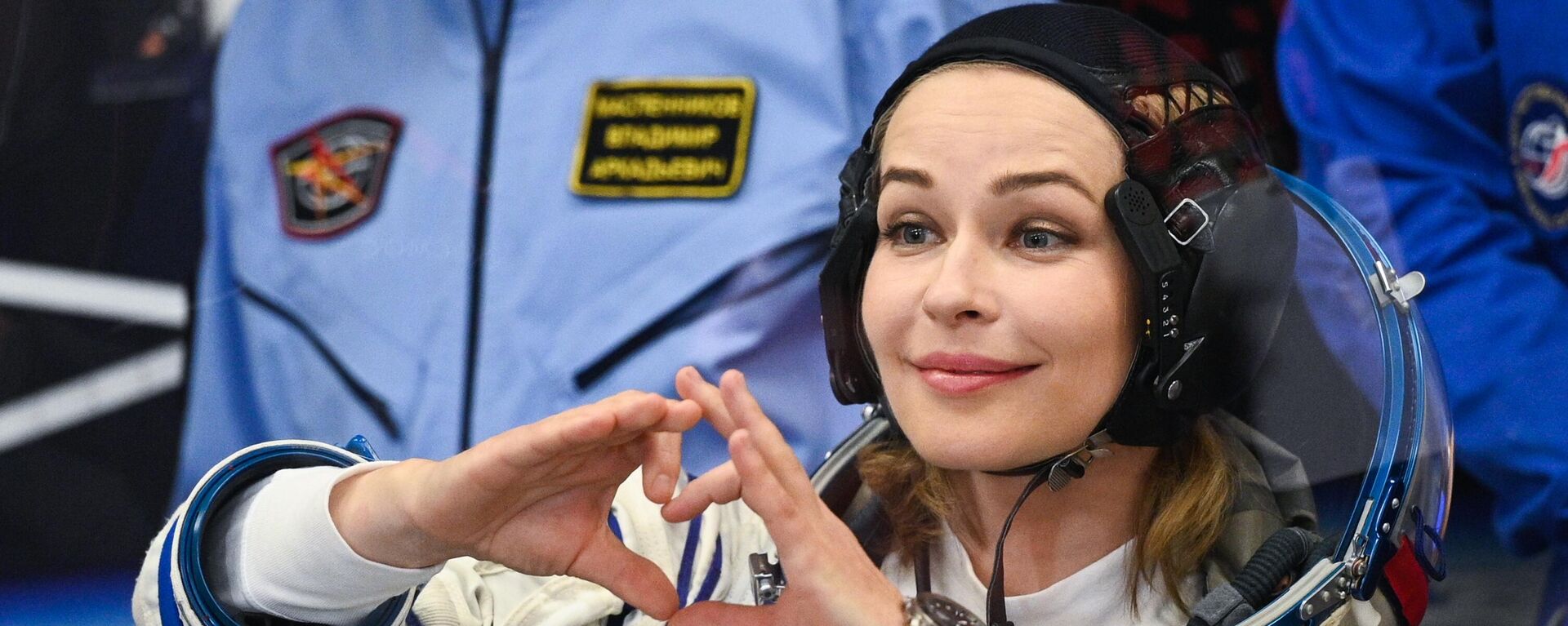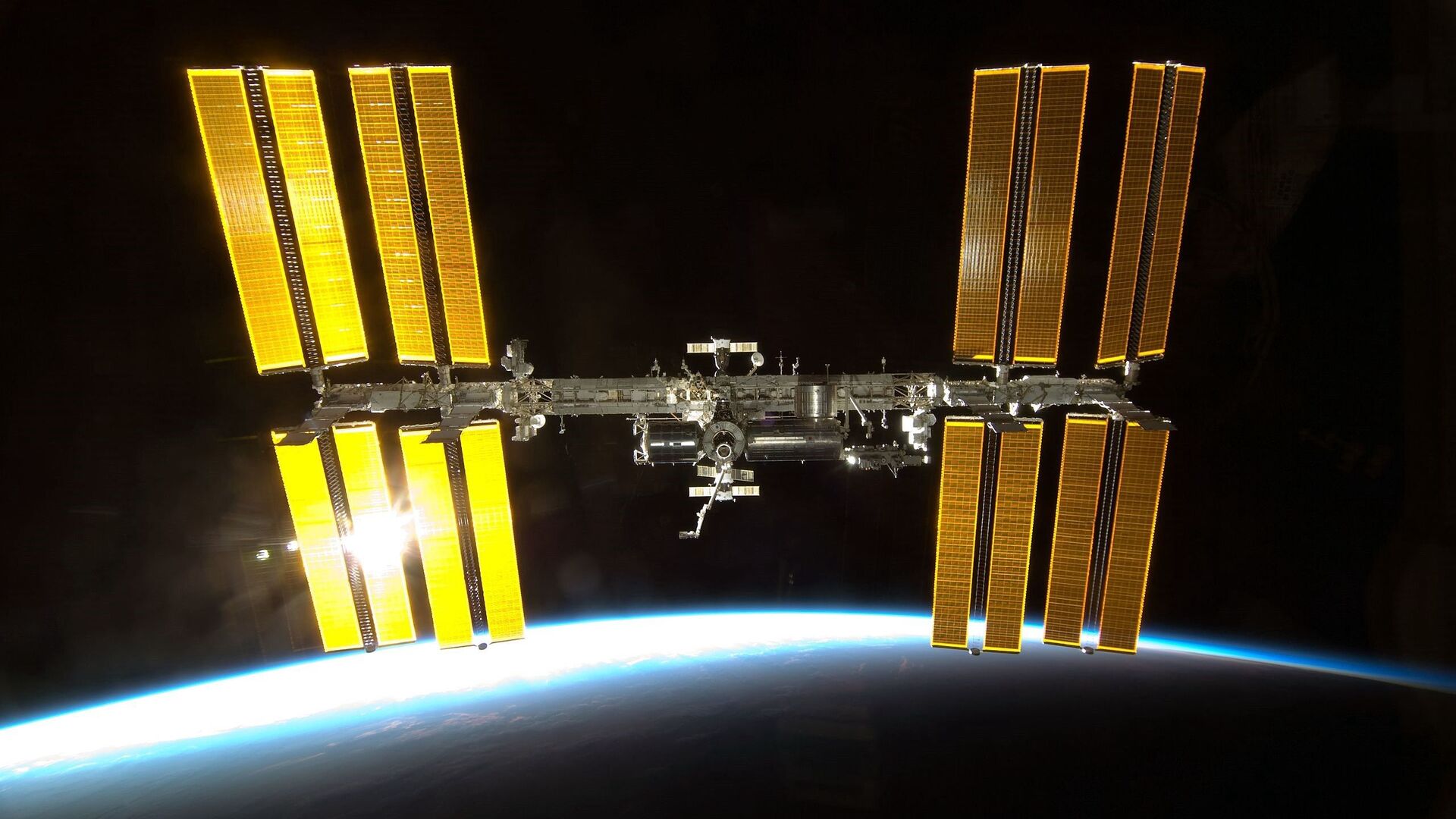https://sputnikglobe.com/20211015/nasa-iss-loses-orientation-in-space-while-testing-engines-of-soyuz-spacecraft-1089947159.html
ISS Orientation in Space Restored With Help of Russian Segment Engines
ISS Orientation in Space Restored With Help of Russian Segment Engines
Sputnik International
MOSCOW (Sputnik) - The International Space Station (ISS) restored its orientation in space on Friday with the help of engines of the Russian segment, according... 15.10.2021, Sputnik International
2021-10-15T10:56+0000
2021-10-15T10:56+0000
2021-10-15T11:32+0000
newsfeed
soyuz
iss
nasa
space
https://cdn1.img.sputnikglobe.com/img/07e4/0a/06/1080685272_0:131:2561:1571_1920x0_80_0_0_1e900be719385dbb74fc8fc60f3455b5.jpg
Earlier in the day, the ISS lost its orientation in space while testing engines of the Soyuz MS-18 manned spacecraft, which will bring the "cinema crew" back to Earth this weekend.Previously, cosmonaut Anton Shkaplerov told the Moscow region-based mission control centre that they had "received an emergency message from colleagues [from the US segment of the ISS] about the loss of orientation".The centre explained that this was a test of the Soyuz MS-18 motion control system, which is usually carried out with activated engines.The Soyuz MS spacecraft carrying the International Space Station (ISS) Expedition 66 docked with the ISS on 5 October, bringing actress Yulia Peresild, movie director Klim Shipenko and cosmonaut Anton Shkaplerov to the station. The "cinema crew" arrived at the ISS to shoot the first feature film in space known by the working title "Challenge". They were welcomed by an international crew of Russian cosmonauts Oleg Novitskiy and Pyotr Dubrov; NASA astronauts Mark Vande Hei, Shane Kimbrough and Megan McArthur; Japan's Aki Hoshide; and Thomas Pesquet of the European Space Agency.
https://sputnikglobe.com/20211005/russian-film-crew-arrives-at-iss-to-make-first-feature-movie-in-space-1089682938.html
Sputnik International
feedback@sputniknews.com
+74956456601
MIA „Rossiya Segodnya“
2021
Sputnik International
feedback@sputniknews.com
+74956456601
MIA „Rossiya Segodnya“
News
en_EN
Sputnik International
feedback@sputniknews.com
+74956456601
MIA „Rossiya Segodnya“
Sputnik International
feedback@sputniknews.com
+74956456601
MIA „Rossiya Segodnya“
newsfeed, soyuz, iss, nasa, space
newsfeed, soyuz, iss, nasa, space
ISS Orientation in Space Restored With Help of Russian Segment Engines
10:56 GMT 15.10.2021 (Updated: 11:32 GMT 15.10.2021) MOSCOW (Sputnik) - The International Space Station (ISS) restored its orientation in space on Friday with the help of engines of the Russian segment, according to astronauts' negotiations with the flights’ control centre, broadcast by NASA.
Earlier in the day, the ISS lost its orientation in space while testing engines of the Soyuz MS-18 manned spacecraft, which will bring the "cinema crew" back to Earth this weekend.
"The orientation of the station was promptly restored thanks to the actions of the personnel of the ISS Russian Segment Main Operational Control Group. Nothing threatens the station and the crew," the Russian Rocket and Space Corporation Energia, part of the Roscosmos, said.
Previously, cosmonaut Anton Shkaplerov told the Moscow region-based mission control centre that they had "received an emergency message from colleagues [from the US segment of the ISS] about the loss of orientation".
The centre explained that this was a test of the Soyuz MS-18 motion control system, which is usually carried out with activated engines.

5 October 2021, 13:09 GMT
The Soyuz MS spacecraft carrying the International Space Station (ISS) Expedition 66 docked with the ISS on 5 October, bringing actress Yulia Peresild, movie director Klim Shipenko and cosmonaut Anton Shkaplerov to the station. The "cinema crew" arrived at the ISS to shoot the first feature film in space known by the working title "Challenge". They were welcomed by an international crew of Russian cosmonauts Oleg Novitskiy and Pyotr Dubrov; NASA astronauts Mark Vande Hei, Shane Kimbrough and Megan McArthur; Japan's Aki Hoshide; and Thomas Pesquet of the European Space Agency.


